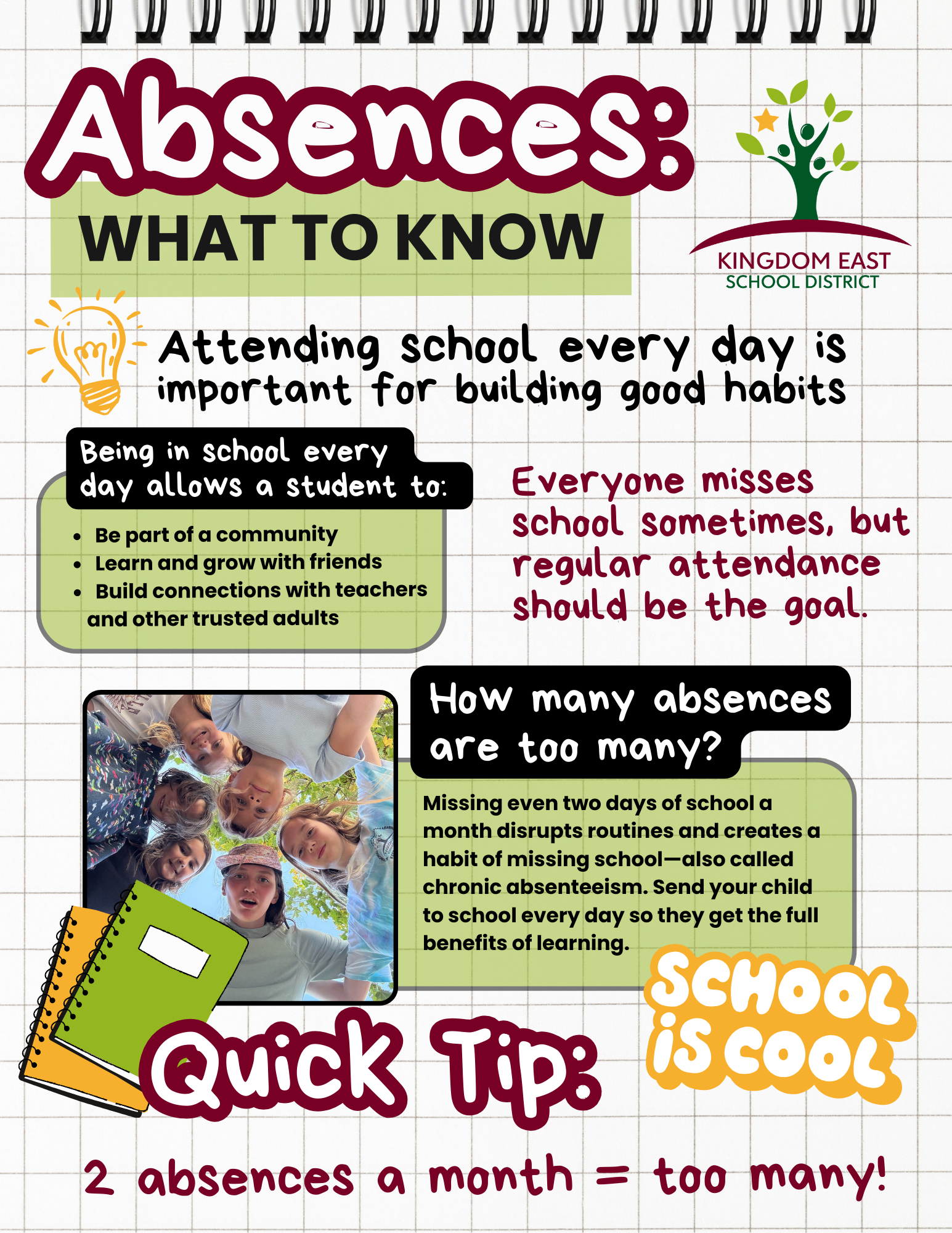The Power of Showing Up: Why School Attendance Matters
September 24, 2025
When it comes to helping students succeed, one of the most important — and sometimes overlooked — factors is simply being present at school every day. Regular attendance builds the foundation for academic achievement, social development, and long-term success.
Whether a child is just starting kindergarten or approaching middle school, showing up consistently makes a difference — not just for that student, but for the whole classroom.
Why Is Attendance So Important?
Missing just a few days of school each month may not seem like a big deal, but those absences can add up quickly. Students who miss 18 or more days in a school year (even if they're excused) are considered chronically absent — and that can lead to real challenges:
- Falling behind in reading and math
- Struggling to build peer relationships
- Increased stress from trying to catch up
- Lower performance on assessments
- Higher risk of not graduating on time
Even being frequently late can impact learning by causing students to miss key instruction early in the day.
Consistency Builds Confidence
Attending school regularly helps children build routines, grow academically, and feel connected to their classmates and teachers. School is more than just academics — it’s where students:
- Build friendships and social skills
- Learn responsibility and time management
- Gain confidence and independence
- Feel part of a safe, supportive community
Each day in school brings something new, whether it’s a science experiment, a reading challenge, or simply a moment to laugh with friends. These daily experiences contribute to a student’s sense of belonging and their overall growth.
When Is It Okay to Stay Home?
Of course, there are times when staying home is the best choice — especially when it protects others from getting sick.
Here are a few basic guidelines to help decide when to keep a child home:
Keep your child home if they:
- Have a fever over 100.4°F (even after medicine)
- Are vomiting or experiencing diarrhea
- Have red, crusty, or pink eyes
- Have started antibiotics (wait at least 24 hours before returning)
It’s okay to send your child to school if they:
- Have a mild runny nose or cough but no fever
- Have been fever-free without medication for 24 hours
- Haven’t had vomiting or diarrhea for at least 24 hours
When in doubt, check with your school nurse or pediatrician to ensure it’s safe for your child to return.
How Families Can Support Strong Attendance
Families play a critical role in promoting good attendance. Here are a few ways to support your child:
- Create a consistent morning routine to reduce stress before school.
- Schedule appointments after school whenever possible.
- Set regular bedtimes so your child is well-rested.
- Communicate with teachers if your child is struggling or anxious about school.
- Celebrate strong attendance with positive encouragement at home.
School is Better with You!
When students are present, schools thrive. Every child brings something unique to the classroom — their energy, curiosity, creativity, and perspective. And every day they attend, they’re building stronger academic skills and deeper connections.
Let’s work together to help every student show up, feel supported, and succeed — one day at a time.
Quick Reminder for Parents:
- Children should be symptom-free for at least 24 hours before returning to school.
- If your child is prescribed antibiotics, wait 24 hours after the first dose before sending them back.
Remember: Success starts with showing up.
We’re excited to see your child in school — every day matters!










